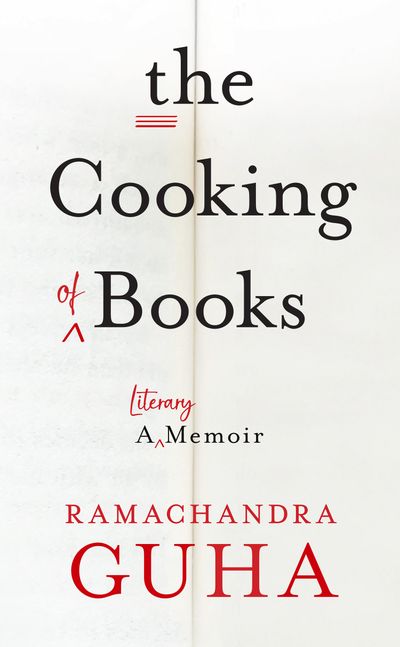The Cooking of Books: A Literary Memoir
It is not often that an author and his editor strike up a relationship which survives forty years of epistolary exchanges and intellectual sparring.
The strangely enduring and occasionally fractious friendship which developed between the famously outspoken historian Ramachandra Guha and his reticent editor Rukun Advani is the subject of this quite eccentric and thoroughly compelling literary memoir.
It started in Delhi in the early 1980s, when Guha was an unpublished PhD scholar, and Advani a greenhorn editor with Oxford University Press. It blossomed through the 1990s, when Guha grew into a pioneering historian of the environment and of cricket, while also writing his pathbreaking biography of Verrier Elwin. Over these years Advani was Guha’s most constant confidant, his most reliable reader. He encouraged him to craft and refine the literary style for which Guha became internationally known – narrative histories which have made vast areas of scholarship popular and accessible.
Four decades later, though he no longer publishes his books, Advani remains Guha’s most trusted literary adviser. Yet they also disagree ferociously on politics, human nature, and the shape of their commitment to India. They usually make up – because it just wouldn’t do to allow such an odd relationship to die.
Built around letters and emails between an outgoing and occasionally combative scholar and a reclusive editor prone to private outbursts of savage sarcasm, this book is never short of the kind of wit, humour, and drollery that has been strangled by contemporary political correctness.
PRAISE FOR REBELS AGAINST THE RAJ -
‘A narrative of startling originality … his excitement at discovering a forgotten chapter of Indian history is contagious … As discussions of Britain’s colonial legacy become increasingly polarised, we are in ever more need of nuanced books like this one’Sam Dalrymple, Spectator -
‘Fascinating and provocative … Guha organises his material expertly and presents it clearly and stylishly, illuminating an aspect of Raj history which is often forgotten or neglected but which is nonetheless crucial for an understanding both of present-day India and of Britons’ complex and ambivalent past relationship to this ‘jewel’ in their collective crown. This superb book does them justice, as well as adding a new dimension to the histories both of subject India and of imperial Britain - and being a thoroughly good read’Literary Review -
‘Guha has done well to remind us of these forgotten stories, all the more as India, like much of the world, is becoming more xenophobic and intolerant, believing all the virtues lie in national frontiers’Irish Times -
‘Illuminating and engaging … Guha’s wide-ranging research and lucid narration brings to life these men and women … Rebels Against the Raj, however, makes a larger, more important and incisive point. Guha calls the lives and work of these rebels a morality tale for the world we now inhabit - a world incandescent with xenophobia and jingoism, and full of contempt for thoughts and ideas that a culture can imbibe from outside its borders’New Statesman -
‘Eminently readable and dazzling … Painstakingly researched, this is history writing at its best’The Tribune -
